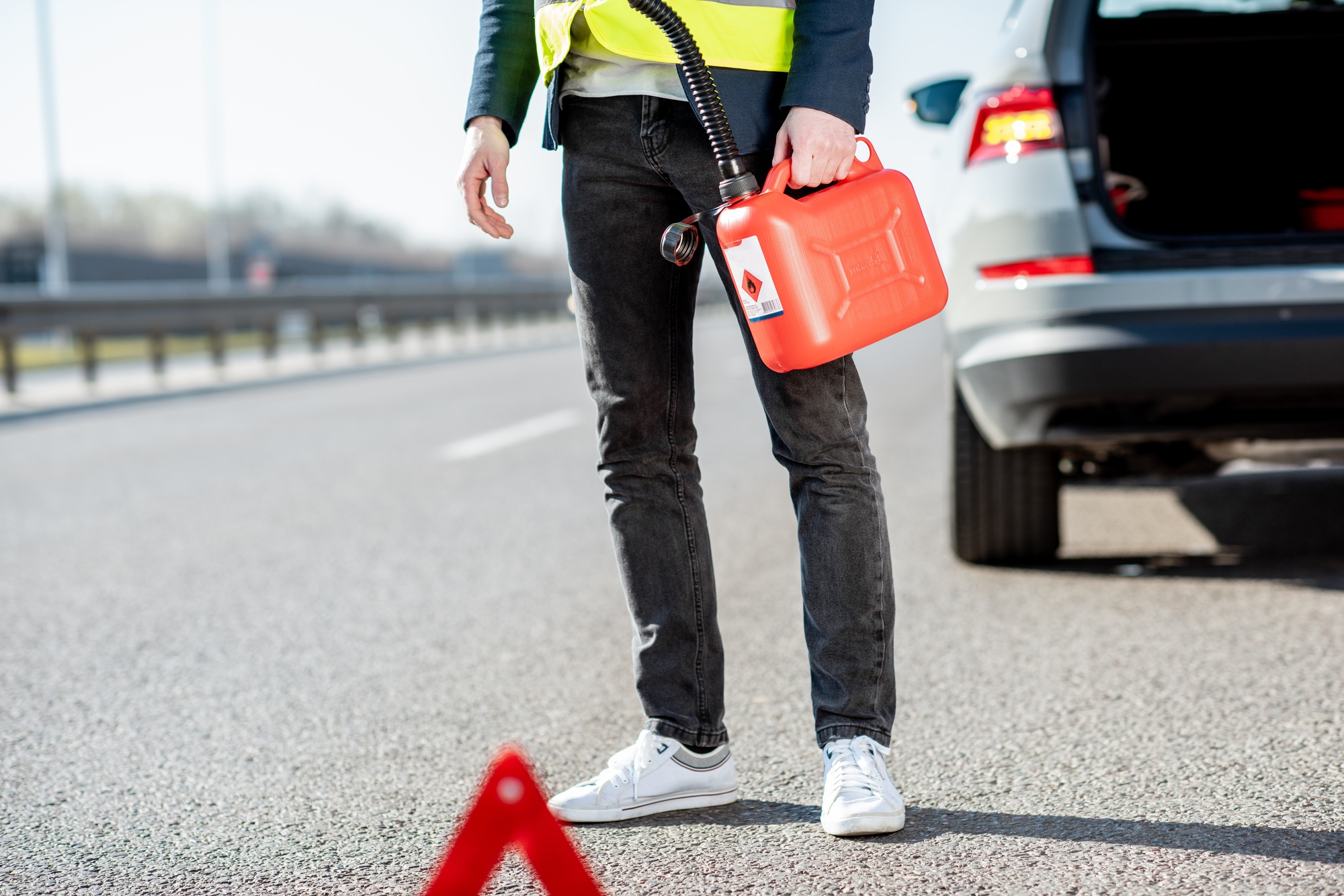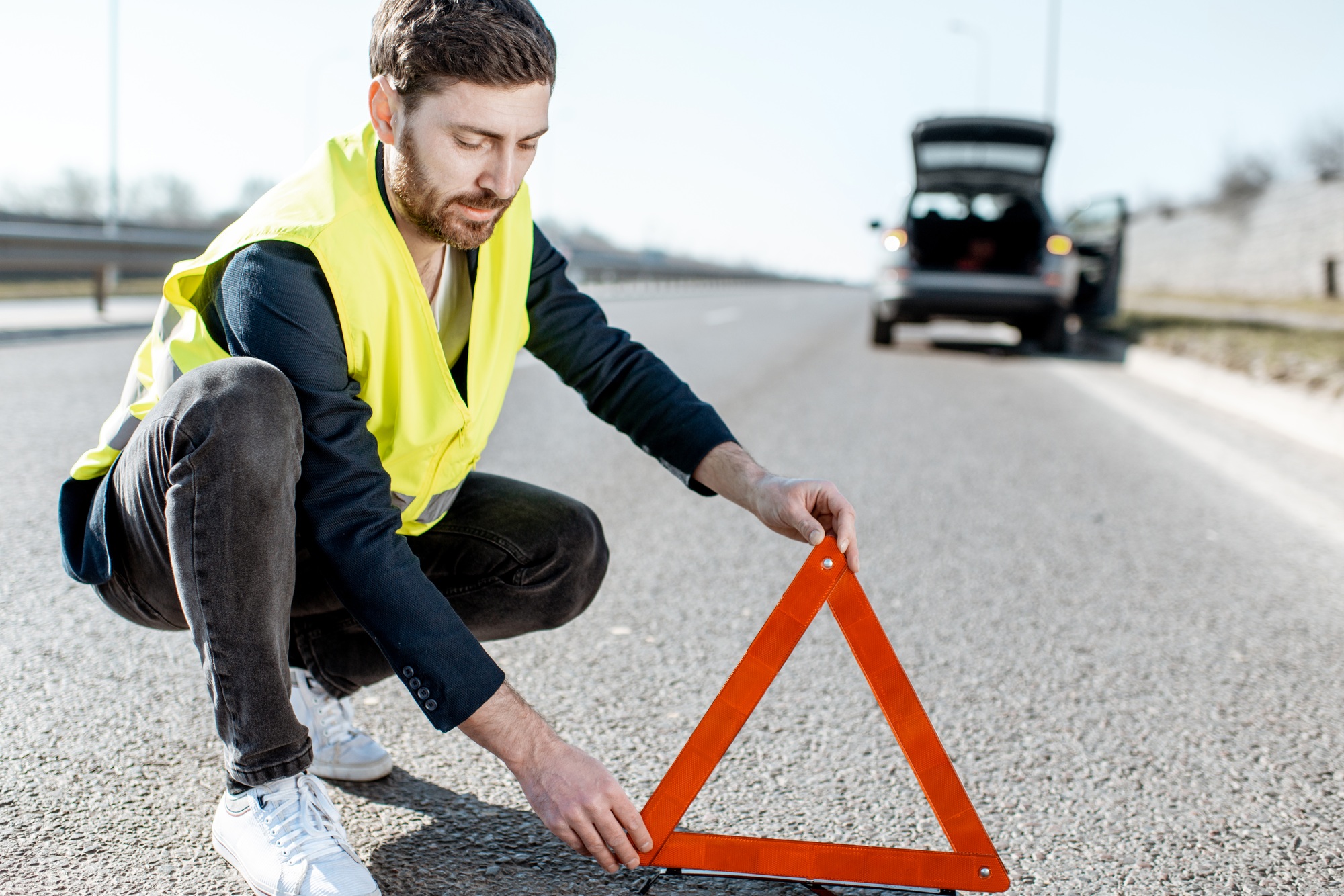Getting stranded on a highway can be a stressful and potentially dangerous experience. Whether due to a flat tire, engine trouble, or running out of fuel, knowing what to do when youâre stranded on a highway is crucial for your safety and resolving the issue quickly. This comprehensive guide will walk you through actionable steps to ensure that you stay safe, calm, and prepared in such situations. With the right strategies and assistance, like from services such as Crossroads Helpline, you can handle this ordeal with confidence.
Why Preparation Matters on Highways
Highways are the arteries of modern transportation, often bustling with vehicles traveling at high speeds. While they are designed for convenience, they can also be isolating when you face unexpected car trouble. Imagine being stranded on a deserted stretch of road with no immediate help. This scenario highlights the importance of understanding what to do when youâre stranded on a highway.
The good news is that services like Crossroads Helpline specialize in providing quick and reliable roadside assistance, ensuring youâre never truly alone. However, personal preparation and knowledge are equally important. This article will provide step-by-step actions to take, safety precautions, and the benefits of using professional assistance, so youâre never caught off guard.
1. Prioritize Your Safety Above All Else
The moment you realize your vehicle has broken down, your first concern should be safetyâyours and that of your passengers. Highways are high-speed environments where even a small misstep can result in serious accidents. Follow these steps:
- Pull Over Safely: Signal immediately and move your car to the shoulder or a safe area. If your car is inoperable, turn on your hazard lights to alert other drivers.
- Stay Inside the Vehicle: Unless itâs unsafe, remain inside your car with seat belts fastened. Standing near moving traffic increases the risk of accidents.
- Make Yourself Visible: Use hazard lights, reflective triangles, or flares to make your vehicle noticeable, especially at night or during bad weather.
Taking these precautions significantly reduces the likelihood of further complications. If your vehicleâs battery dies, consider calling for Car Battery Jumpstart Services to get your engine running again.
2. Assess the Situation Calmly
Panic can cloud your judgement, so itâs essential to take a moment to assess your situation. Ask yourself the following questions:
- What caused the breakdown? Is it a flat tire, an overheated engine, or an empty gas tank?
- Is there immediate danger, such as smoke or unusual smells coming from the vehicle?
- Are there any nearby landmarks or exits to help pinpoint your location?
Once youâve identified the problem, you can plan your next steps more effectively. Knowing what to do when youâre stranded on a highway involves understanding your circumstances and acting accordingly.
3. Communicate for Help
When youâre stranded, reaching out for assistance is vital. Hereâs how to do it effectively:
- Call a Roadside Assistance Service: Services like Crossroads Helpline offer professional support to stranded motorists. They can provide towing, fuel delivery, or help with a flat tire.
- Inform a Trusted Contact: Let a family member or friend know your location and situation. This ensures someone is aware of your predicament.
- Use Location Apps: If unsure about your exact location, use apps like Google Maps or GPS to share your position accurately.
Clear communication is key to receiving timely help, so be concise but thorough when explaining your situation. If youâre stranded with an empty tank, services like Fuel Delivery from Crossroads Helpline can bring you the fuel you need to get back on the road.
4. Stay Prepared for Emergencies
Preparation is often the best defence against unexpected situations. Before hitting the road, ensure your vehicle is equipped with:
- Emergency Kit: Include items like a flashlight, first-aid kit, water, and non-perishable snacks.
- Basic Tools: Carry a tire jack, wrench, and jumper cables.
- Phone Charger: Keep a car charger or power bank to ensure your phone stays operational.
These essentials can make a significant difference in how you handle being stranded on a highway.
5. Attempt Basic Troubleshooting if Possible
Sometimes, the issue might be something you can resolve on your own. Here are a few scenarios:
- Flat Tire: If you have a spare and the necessary tools, change the tire safely.
- Dead Battery: Use jumper cables to restart the vehicle if another car is available to assist.
- Overheating: Allow the engine to cool before checking the coolant level.
However, if the problem seems complex, avoid attempting repairs and wait for professional assistance. If you encounter a flat tire and lack the necessary tools, you can rely on professional help, like Flat Tire Assistance from Crossroads Helpline, to quickly resolve the issue.
6. Avoid Common Mistakes
Knowing what to do when youâre stranded on a highway also means understanding what NOT to do. Avoid these common errors:
- Walking on the Highway: This is extremely dangerous and should be avoided unless thereâs no other option.
- Ignoring Warning Signs: If your vehicle shows signs of trouble, address them immediately rather than pushing your luck.
- Accepting Help from Strangers: While most people have good intentions, itâs safer to rely on professional services.
Staying cautious ensures that you donât inadvertently worsen the situation. If youâre locked out of your car, you can count on Car Key Lockout Services from Crossroads Helpline to help you regain access quickly.
7. Rely on Professional Roadside Assistance

Professional assistance can be lifesaver when youâre stranded. In cases where your vehicle cannot be repaired on-site, Crossroads Helpline offers Towing Services to transport your car safely to a repair facility. Crossroads Helpline is an excellent example of a service that offers:
- 24/7 Availability: No matter the time, help is just a call away.
- Comprehensive Services: From towing to fuel delivery, they cover a wide range of needs.
- Expert Technicians: Their team is trained to handle various roadside emergencies efficiently.
By relying on experts, you can avoid unnecessary stress and ensure the problem is resolved correctly.
8. Learn Preventive Measures for the Future
The best way to handle being stranded is to prevent it from happening in the first place. Here are some tips:
- Regular Maintenance: Keep your car in good condition by checking tire pressure, oil levels, and brakes regularly.
- Plan Your Route: Familiarise yourself with the roads and identify nearby service stations.
- Monitor Fuel Levels: Avoid letting your gas tank drop too low, especially on long journeys.
These habits reduce the likelihood of finding yourself in a stranded situation.
Immediate Steps When Stranded
Hereâs a quick reference to remember what to do when youâre stranded on a highway:
- Pull over to a safe location.
- Turn on hazard lights and make your vehicle visible.
- Stay inside your car if itâs safe.
- Contact roadside assistance or emergency services.
- Use your emergency kit while waiting for help.
By following this checklist, you can handle the situation effectively.
Essential Emergency Items for Your Car

| Item | Purpose |
|---|---|
| Reflective Triangles/Flares | Increase visibility to other drivers |
| Flashlight and Batteries | Provide light in dark conditions |
| First-Aid Kit | Handle minor injuries |
| Jumper Cables | Restart a dead battery |
| Portable Phone Charger | Keep your phone operational |
| Non-Perishable Snacks | Sustain energy during long waits |
Having these items in your car ensures youâre prepared for unexpected scenarios.

